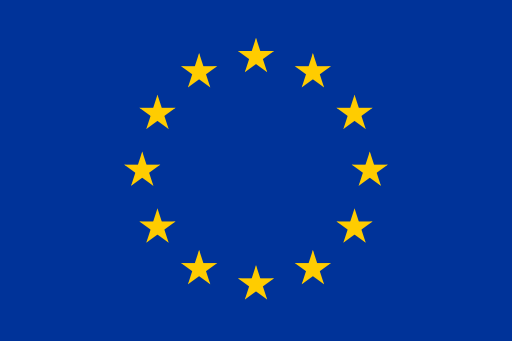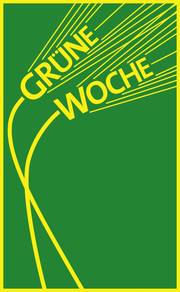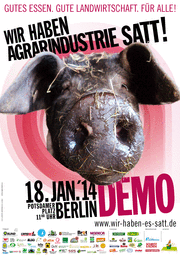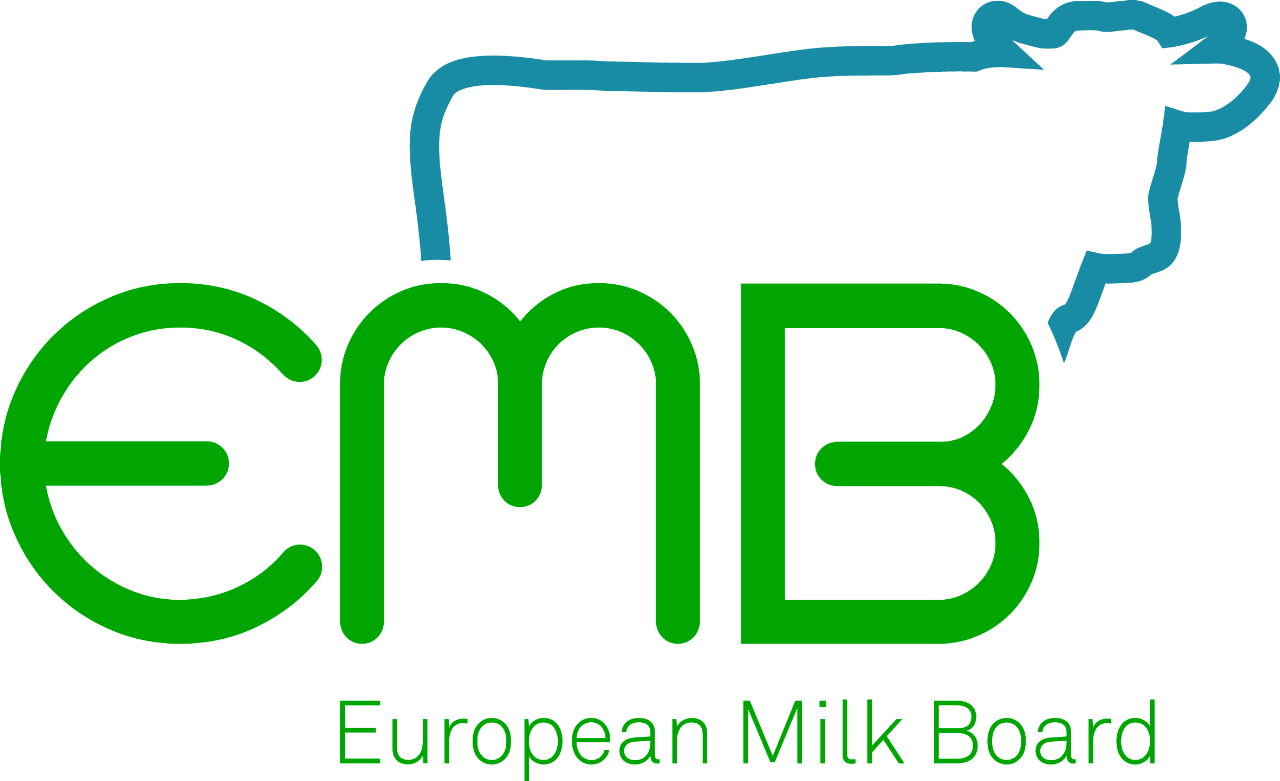EMB Newsletter January 2014
Newsletter as PDF
Contact
European Milk Board
Rue du Commerce 124
B-1000 Brussels
Phone: 0032/2808/1935
Fax: 0032/2808/8265
E-Mail: office@europeanmilkboard.org
Website: http://www.europeanmilkboard.org
Newsletter as PDF
Contact
EMB - European Milk Board asbl
Rue de la Loi 155
B-1040 Bruxelles
Phone: +32 - 2808 - 1935
Fax: +32 - 2808 - 8265
Dear Dairy Farmers and Interested Parties,
Once again we are on the cusp of a new year.
Farm-gate milk prices have crept up a little in recent months. In many countries they have crossed the magic threshold of 40 cents/kg milk. There are exceptions, unfortunately, such as France and the Baltic States. The fact that prices there are not rising in the same way they are in the rest of Europe makes us dairy farmers doubt once more the functioning of the milk market. Especially since the dairy industry substantiates the rising prices with greater world demand for dairy products.
We dairy farmers wonder: does the world market have an impact only on, say, Germany and the Netherlands, but not on France? Or do perhaps the long-term contracts forced by the politicians on French milk producers and the inter-branch organisation CNIEL dominated by the buyers have something to do with it? Or is the dairy industry in many EU countries deliberately pushing farm-gate prices upwards? To pacify dairy farmers just before the end of the quota system and fake the golden future cited by the industry time and again?
One thing is clear: because production costs have also risen, the slightly higher milk prices are still not enough to generate a reasonable profit and set aside reserves. They are enough to stimulate production, though. And that is precisely where the danger lies. The day the market turns is inevitable. The only question is: when?
As is generally known, last year the EU Commission announced its intention to set up a monitoring agency for the milk market. The EMB welcomes this emphatically. We will see how swiftly this plan is put into practice. One thing is clear for us at EMB, though: it should not stop at monitoring the development of the market or margins at the individual stages of the value chain. Instead, effective market instruments should be decided on and installed as quickly as possible to enable the agency to take action when a market crisis is looming.
Putting this plan into action is the EMB’s most important goal in 2014.
Romuald Schaber (President of the EMB)
2014: Europe on the move?
This will be an exciting year. At least, that is what you could think if you glanced at the EU institutions’ agenda. In May, there are elections for the European Parliament, and after that the setting up of the new EU Commission, which has to be confirmed by the Parliament and the European Council. The old commission’s term of office finishes at the end of October 2014. Commissioner for Agriculture Dacian Ciolos in particular still has to set a few things in motion before then. There are important deadlines scheduled specifically for milk. New proposals for the milk market must be tabled by the middle of the year. These are sorely needed, since neither the Milk Package nor the CAP reform enshrines instruments capable of guaranteeing stability in the sector.
Presse conference: What does the future hold for the EU milk market?
The EMB has sent out the following invitation regarding a press conference at the International Green Week (IGW) on Thursday, 16 January 2014 in Berlin.
Dear Media Representatives,
What will 2014 bring the European milk producers? After the adoption of the Milk Package and the CAP, which resulted in hardly any improvements for farmers, the end of the quota regulation is at hand, whilst milk prices still do not cover production costs.
Successful mobilisation in Brussels on 18 and 19 December
More than 2,000 people gathered at five crossroads in the European quarter on Thursday, 19 December 2013, on the initiative of Alliance D19-20, a non-partisan platform of individuals, farmers, associations, activists’ networks and trade unions making these two demands: the abolition of measures advocated by the Treaty on Stability, Co-operation and Governance (TSCG) as the way to overcome the crisis, and an end to negotiations on the Transatlantic Trade and Investment Partnership (TTIP) between the EU and the USA, conducted behind closed doors without the people of Europe being able to air their views on the matter.
The dairies and the trade continue to block the rise in the milk price
Once more the inter-branch organisation Milch BOM was unable to agree at its last meeting on a moderate increase of 3 centimes in the reference price. The increase called for by the producers’ representatives was rejected by the buyers. Instead, a model for calculating the reference price will be used that raises the reference price by 2 centimes based on the shop prices five months ago. But since this reference price is non-binding, only very few producers will actually receive a little more.
We’re fed up with the agricultural industry: demo in Berlin on 18 January
Once again, this year the Meine Landwirtschaft (My Agriculture) alliance in collaboration with ARC 2020, AbL and many other civil-society groups is urging people to attend a big demonstration in Berlin on 18 January. Under the banner “Good Food. Good Agriculture. For Everyone” the call will be for a more ecological, fairer family-farming agricultural policy.
EMB Calendar
These are some of the most important dates for the EMB Board in January 2014:
16.01.: Press conference at the International Green Week (IGW) in Berlin
17.01.: Board meeting in Berlin
20.01.: NGO workshop on EU-US free trade agreement (TTIP) in Brussels
Full Texts
2014: Europe on the move?

This will be an exciting year. At least, that is what you could think if you glanced at the EU institutions’ agenda. In May, there are elections for the European Parliament, and after that the setting up of the new EU Commission, which has to be confirmed by the Parliament and the European Council. The old commission’s term of office finishes at the end of October 2014. Commissioner for Agriculture Dacian Ciolos in particular still has to set a few things in motion before then. There are important deadlines scheduled specifically for milk. New proposals for the milk market must be tabled by the middle of the year. These are sorely needed, since neither the Milk Package nor the CAP reform enshrines instruments capable of guaranteeing stability in the sector.
In September last year, Commissioner for Agriculture Ciolos had already envisaged a monitoring agency for the milk market. This announcement must now be converted into action in the summer proposals if the dairy sector is not to be allowed to plunge into the same chaos which is, unfortunately, so typical of the state of things in Switzerland. Because there are no sensible mechanisms there, once the quota system was abandoned in 2009 prices collapsed, and have not recovered to date. The upshot is that farms in Switzerland are closing every day; nationwide milk production is constantly on the decline.
Although the monitoring agency announced by Ciolos is already an essential first step for the EU, more steps have to be taken. Apart from monitoring the market, this agency must also be able to react and adjust volumes, for cost-covering farm-gate prices cannot be achieved without this.
Of course, it is not just the Commission that decides on the milk market. The Council of Ministers and the Parliament also have an important say when it comes to new rules. Even though many ministers of agriculture have come to realise that the milk market requires a sensible regulatory framework, there are still some governments trapped in traditional liberal thinking. Germany, the United Kingdom and the Netherlands insist on the traditional position, which is implicitly against milk production throughout the country. A movement forward is of urgent necessity, and in 2014 it is still a major task to bring these hardliners around to the idea of sustainable milk production in the EU. For the closer we get to the end of quotas in the EU, the more evident it becomes that the chosen path of deregulation and the dairies’ dominance of the market is leading to a dead end: many farms throughout Europe are giving up milk production, and the size of the dairy sector workforce continues to dwindle.
So to really set something in motion there is a lot to do in this new year: for politicians, dairy farmers and consumers. Let’s go!
Silvia Däberitz (EMB)





